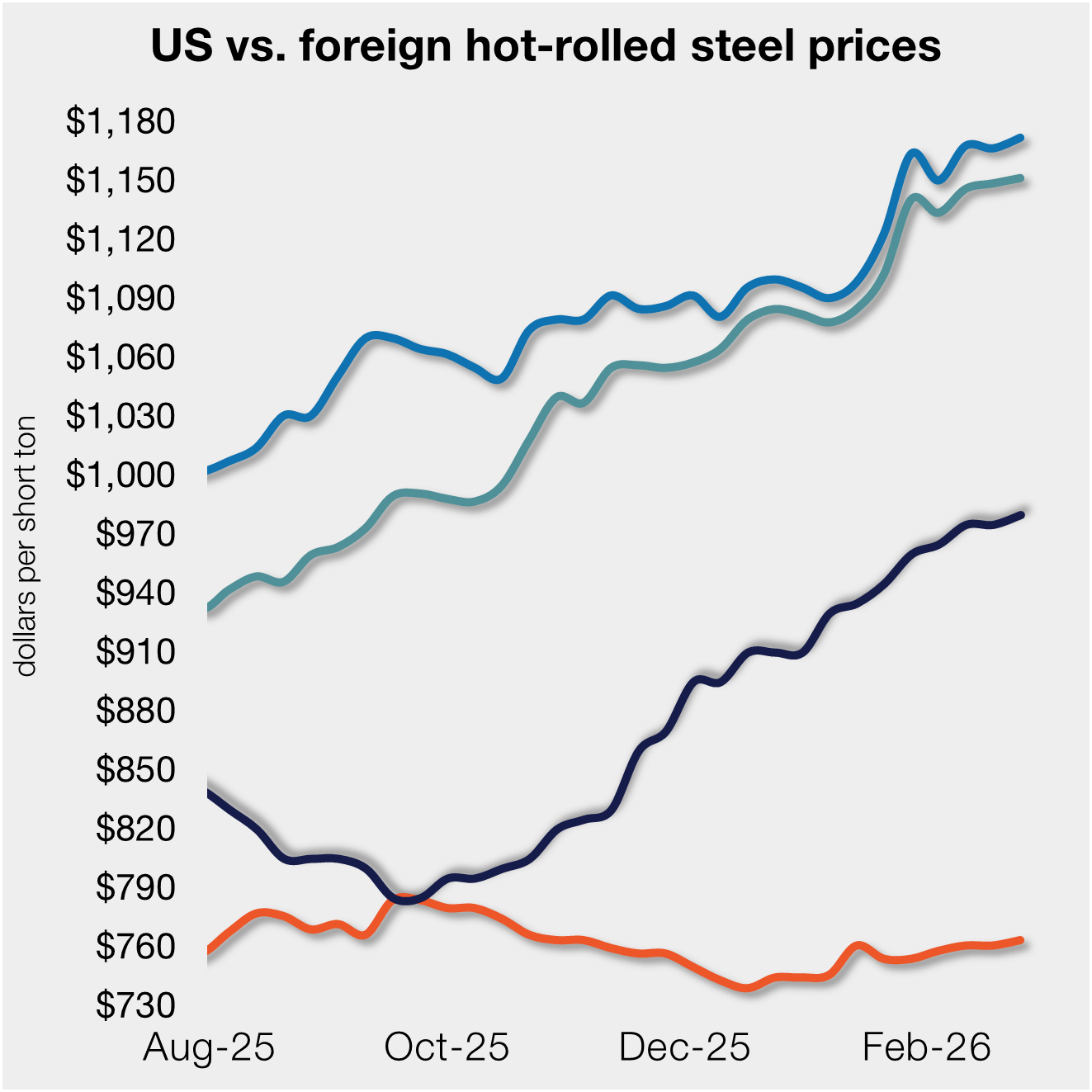Overseas
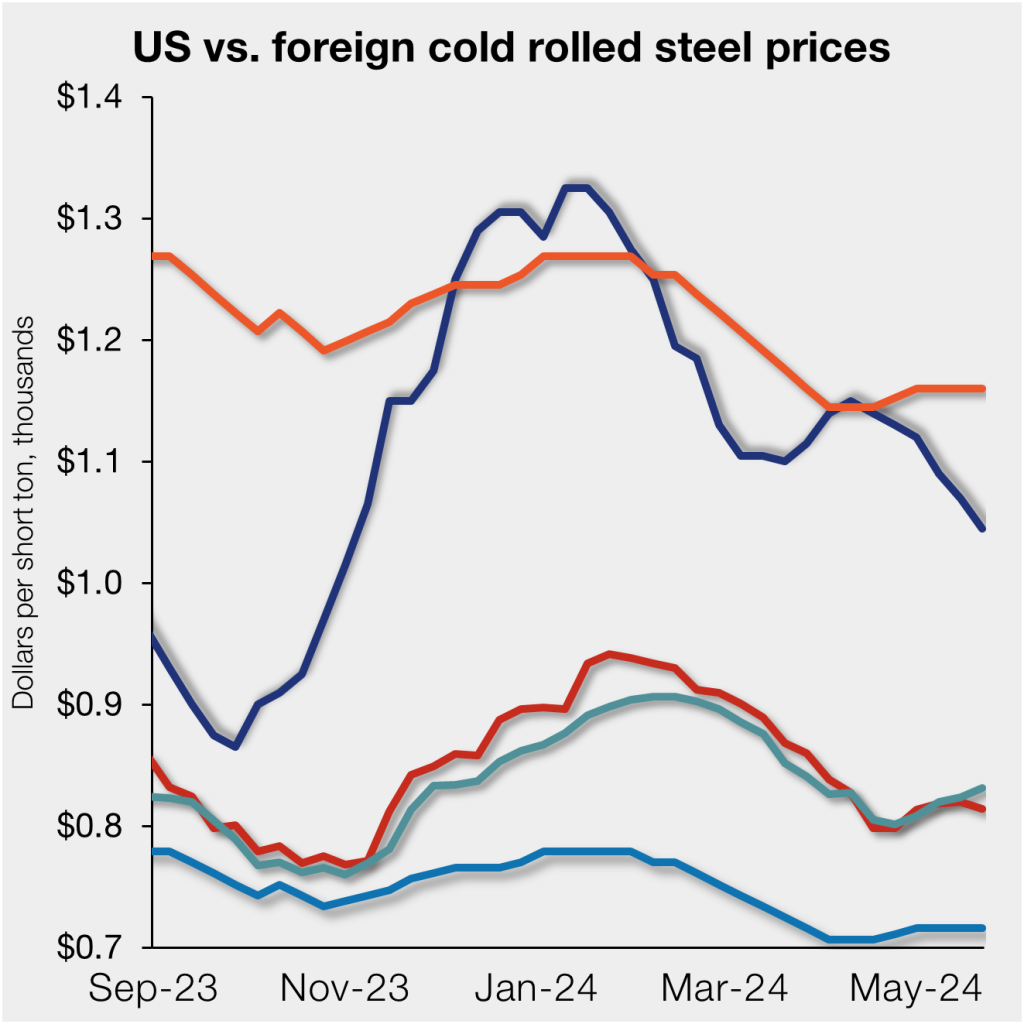
May 23, 2024
US CR tags move lower, still much higher than imports
Written by David Schollaert
Offshore cold-rolled (CR) coil prices remain a cheaper option over domestic product, even as US CR coil prices tick lower, according to SMU’s latest check of the market.
All told, US CR prices are now 19.4% more expensive than imports. The premium declined from 21.8% last week, further distancing itself from the recent high of 31.5% in early January.
In dollar-per-ton terms, US CR is now on average $165 per short ton (st) more than offshore product, down $26 week over week (w/w) on average. While the premium is down – largely due to a decrease in stateside prices – the premium is now roughly $146/st off from the recent peak of $311/st from mid-January (Figure 1).
This week, domestic CR tags were $1,045/st on average based on SMU’s latest check of the market on Tuesday, May 21, down $25/st w/w – and down $105/st through six straight weekly declines.
The charts below compare all five price indices in this report. The right side highlights the difference in more recent pricing.
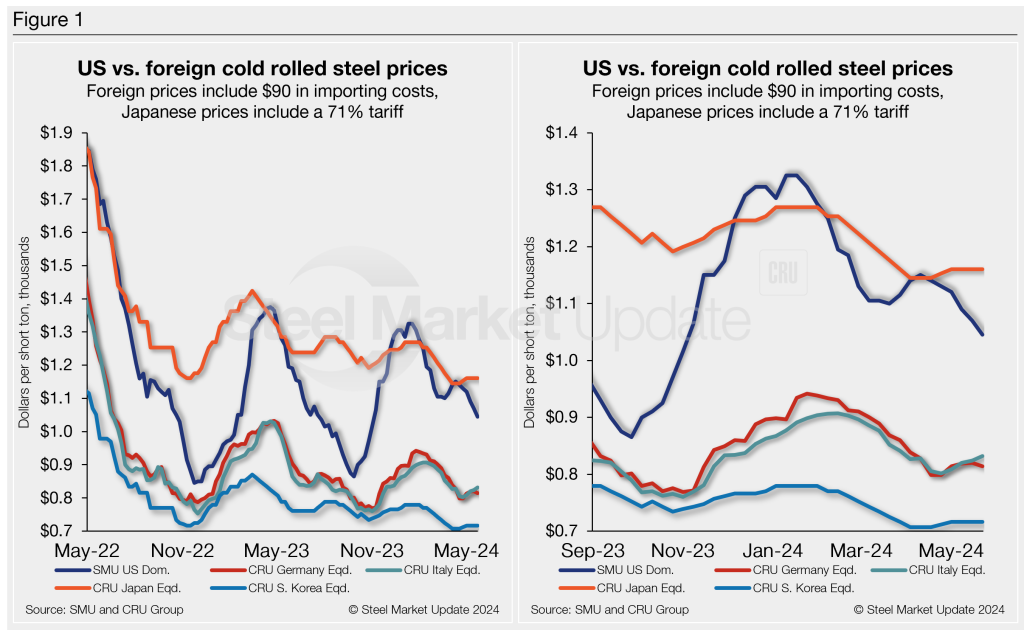
Methodology
This is how SMU calculates the theoretical spread between domestic CR prices (FOB domestic mills) and foreign CR prices (delivered to US ports): We compare SMU’s US CR weekly index to the CRU CR weekly indices for Germany, Italy, and East Asia (Japan and South Korea). This is only a theoretical calculation. Import costs can vary greatly, influencing the true market spread.
We add $90 per short ton to all foreign prices as a rough means of accounting for freight costs, handling, and trader margin. This gives us an approximate CIF US ports price to compare to the SMU domestic CR price. Buyers should use our $90-per-st figure as a benchmark and adjust up or down based on their own shipping and handling costs. If you import steel and want to share your thoughts on these costs, please get in touch with the author at david@steelmarketupdate.com.
East Asian cold-rolled coil
As of Thursday, May 23, the CRU Asian CR price was $626/st, sideways w/w and just $9/st higher from last month. Adding a 71% anti-dumping duty (Japan theoretical), and $90 per ton in estimated import costs, the delivered price to the US is $1,160/st.
The South Korean theoretical price is $716/st. The latest SMU cold rolled average of $1,045/st places US-produced CR theoretically $115/st cheaper than steel imported from Japan. But US tags are still $329/st more costly than cold rolled imported from South Korea.
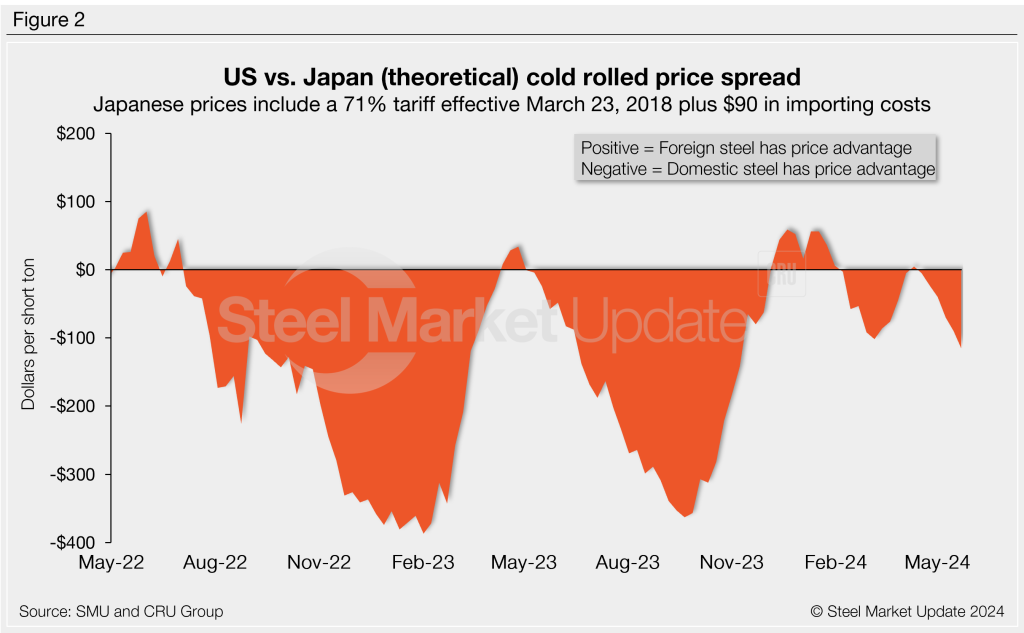
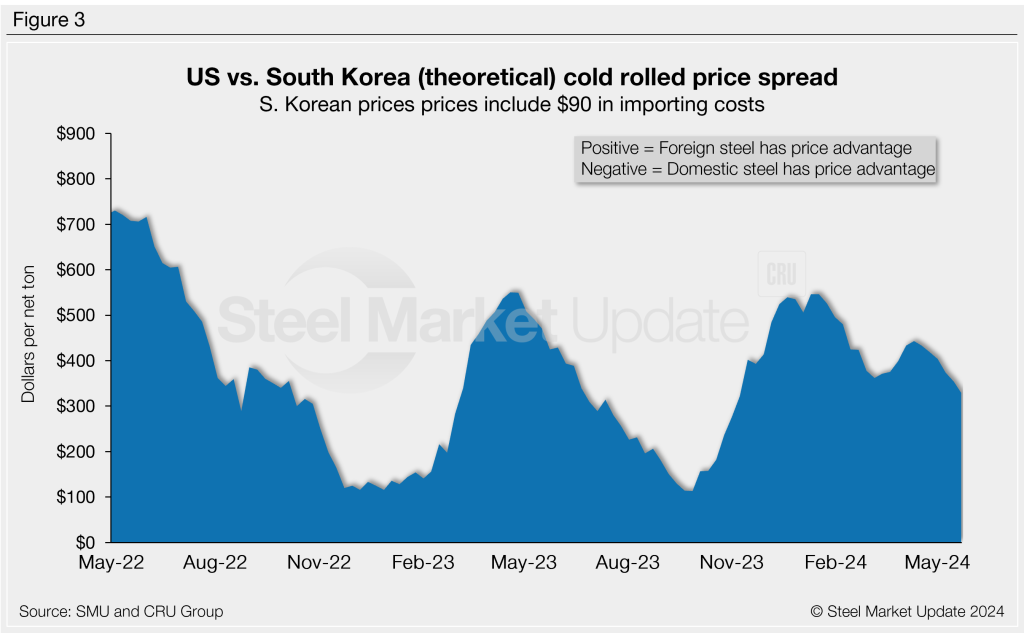
Italian cold-rolled coil
Italian CR prices were up $8/st to roughly $742/st this week, and up $30/st from a month ago. After adding import costs, the delivered price of Italian CR is in theory $832/st.
That means domestic CR is theoretically $213/st more expensive than CR imported from Italy. The spread is down $33/st from last week and now down $240/st from a recent high of $453/st in mid-December.
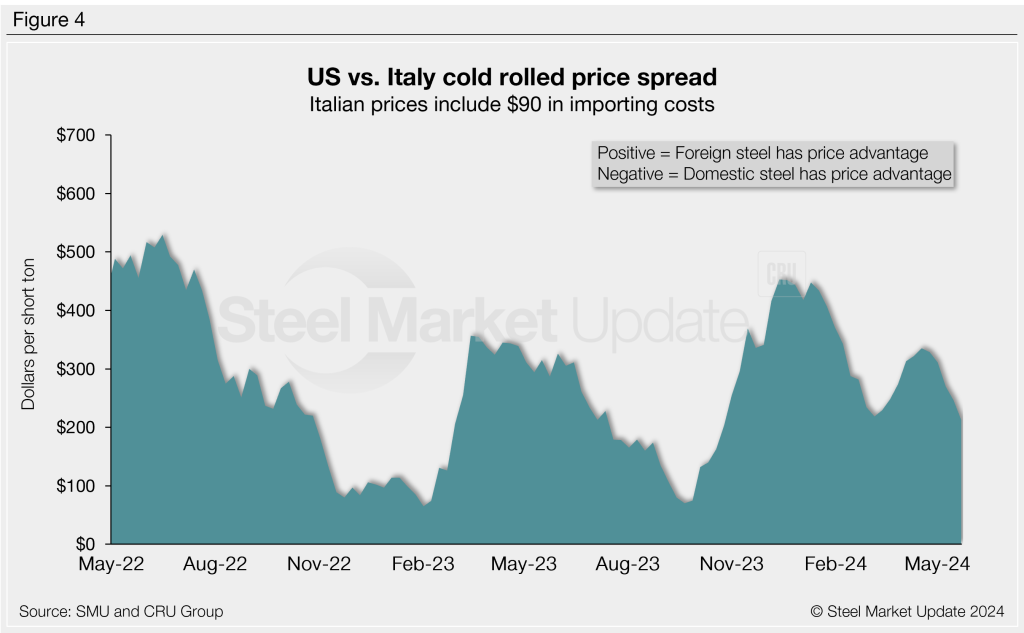
German cold-rolled coil
CRU’s German CR price ticked down $6/st vs. the week before’s $724/st. After adding import costs, the delivered price of German cold rolled is in theory $814/st.
The result: Domestic CR is theoretically $231/st more expensive than CR imported from Germany. The spread is down $19/st w/w and $197/st below a recent high of $431/st during the first week of 2024.
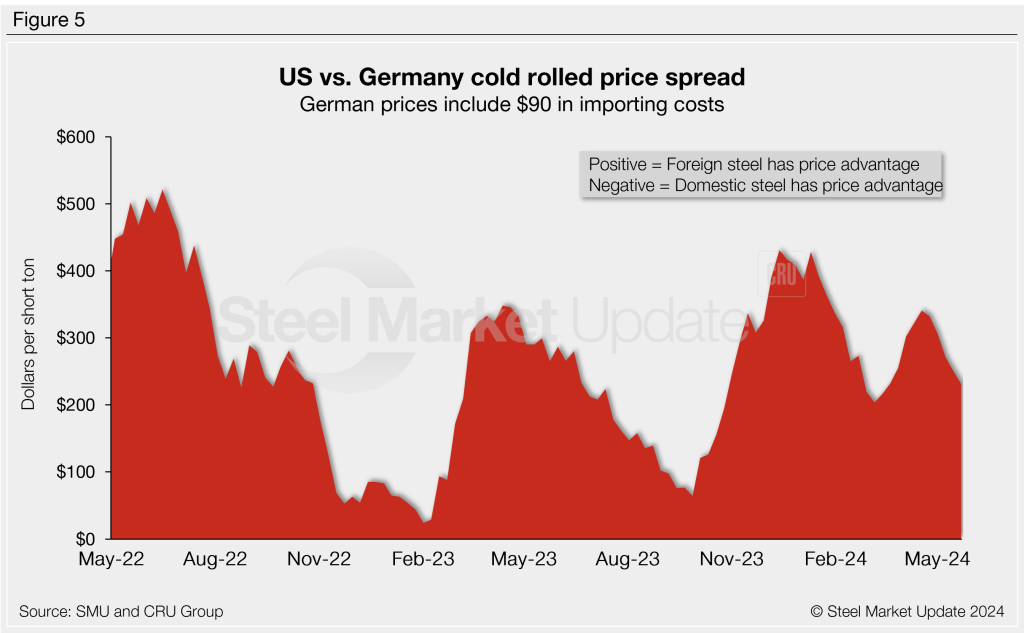
Notes: We reference domestic prices as FOB the producing mill, while foreign prices are CIF the port (Houston, NOLA, Savannah, Los Angeles, Camden, etc.). Inland freight from either a domestic mill or a port is important to keep in mind when deciding where to source from. It’s also important to factor in lead times too. In most market cycles, domestic steel will deliver more quickly than foreign steel.
Section 232 tariffs are no longer considered in these prices. That’s because, effective Jan. 1, 2022, the blanket 25% Section 232 tariff was removed from most imports from the European Union. It was replaced by a tariff rate quota (TRQ). Therefore, the German and Italian price comparisons in this analysis no longer include a 25% tariff. A similar TRQ with Japan went into effect on April 1, 2022. South Korea is subject to a hard quota rather than the 25% tariff.





